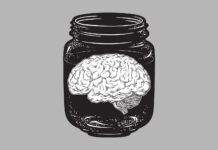A recent study in PNAS Nexus finds that positive parenting can mitigate the damaging impacts of childhood stress on behavior and brain development among youth. However, the buffering effect on behavior and hippocampal volume was only evident in cases where the children themselves reported high levels of positive parenting. When caregivers reported high levels of positive parenting, the same protective effect was not observed.
The research was conducted by Isabella Kahhalé, Kelly R Barry, and Jamie Hanson from the University of Pittsburgh. The authors state:
“Youth perceptions of positive parenting moderated the association between childhood stress and (i) youth behavioral problems and (ii) hippocampal volumes. No significant associations emerged from interactions with caregiver-reported positive parenting or amygdala volumes. We conclude that positive parenting may function as a key resilience factor protecting youth from the deleterious impact of stressful experiences and that youth perspectives are critical to understanding how life stress shapes neurodevelopment and behavior.”
 The study aimed to investigate the role of positive parenting in moderating the adverse outcomes of childhood stress, including behavioral problems and brain development. Furthermore, they explored the differences between the impacts of parenting behaviors as reported by the youth and their caregivers.
The study aimed to investigate the role of positive parenting in moderating the adverse outcomes of childhood stress, including behavioral problems and brain development. Furthermore, they explored the differences between the impacts of parenting behaviors as reported by the youth and their caregivers.
Using data collected from 482 participants in the Healthy Brain Network research initiative, the authors examined the relationship between positive parenting and the repercussions of childhood stress. Stress levels during childhood were gauged using the Negative Life Event Scale, a self-report survey that assesses stress related to family, community, and school. The frequency of behaviors linked to positive parenting was determined using the Alabama Parenting Questionnaire. Both the participants and their caregivers independently filled out this questionnaire. Problem behaviors in youth were evaluated via the Youth-Self-Report. Participants also underwent MRI scans, excluding those scans that were deemed of low quality and high motion.
Childhood stress, according to the study, was connected with elevated behavioral problems. This trend was apparent at low and average levels of child-reported positive parenting. However, the relationship between childhood stress and behavioral issues weakened significantly when children reported high levels of positive parenting.
At the highest levels of child-reported positive parenting, no correlation existed between childhood stress and behavioral issues. This suggests that positive parenting (from the youths’ perspective) breaks the link between childhood stress and behavioral problems.
Conversely, caregiver-reported positive parenting did not show this buffering effect, meaning the connection between childhood stress and behavioral issues remained regardless of the level of positive parenting reported by caregivers.
The researchers also found a relationship between childhood stress and reduced hippocampal volume, especially prevalent at average and below-average levels of child-reported positive parenting. However, there was no correlation between childhood stress and decreased hippocampal volume when children reported above-average levels of positive parenting. This implies that children who perceive their parenting as above average may be shielded from the reductions in hippocampal volume related to childhood stress.
Similar to the findings related to behavioral issues, high levels of caregiver-reported positive parenting did not disrupt the relationship between childhood stress and reduced hippocampal volume.
No associations were found between childhood stress and amygdala volume, nor were there any associations between positive parenting (from either child or caregiver perspectives) and amygdala volume.
Despite these significant findings, the study does have several limitations. The researchers point out that the reported associations were modest in size and based on small effect sizes. They estimated that the combined effects of childhood stress and below-average positive parenting accounted for only 0.06% of the variability in youth’s behavioral issues and 0.02% of the variability in hippocampal volume. They also mention that there was no significant correlation between hippocampal volume and behavioral issues.
As the study design was correlation-based, it could not confirm the causation between childhood stress, hippocampal volume, and positive parenting. For instance, it remains unknown whether high levels of positive parenting directly lead to a decrease in behavioral problems among youth. Other limitations include the broad age range of participants, the potential influence of the method used to measure stress, the exclusion of negative parenting effects, and possible sex-based neurobiological differences unaddressed due to a limited number of participants. The authors conclude:
“Our findings have implications for understanding the impact of childhood stress as well as the factors that buffer youth against the noxious consequences of stress. Given the critical role of the hippocampus in memory and goal-directed behavior, alterations in this structure may create vulnerabilities for later negative outcomes. While additional research is needed to clarify complex relations between stress, parenting, and the brain, our data provide insight into how environmental forces may interact to influence neurobiology.”
Earlier research has suggested that fostering empathy through parental support can help reduce behavioral problems in children. Some studies also suggest that childhood stress, particularly poverty-related, may cause enduring brain changes and early neurological impairment. Other research has demonstrated that childhood stress can modify brain structure and memory.
In addition, it should be noted that a lack of representative data may bias brain imaging studies. Researchers have criticized brain imaging studies as “most likely false,” “unreliable, not suitable for research,” and “problematic if not unsubstantiated.”
****
Kahhalé, I., Barry, K. R., & Hanson, J. L. (2023). Positive parenting moderates associations between childhood stress and corticolimbic structure. PNAS Nexus, 2(6). https://doi.org/10.1093/pnasnexus/pgad145 (Link)















Hard to draw many conclusions from this study alone, but it aligns with a few things that are known already:
– Parental emotional support lessens the degree to which childhood traumatic events lead to trauma
– What’s important in any interaction is not what the parent intends, but what the child interprets – and the meaning which the child takes from it. Hence the difference between parent-reported and child-reported positive parenting.
Report comment
Brain imaging has no value for kids who are hurting. But I bet it makes the “researchers” feel good.
Report comment